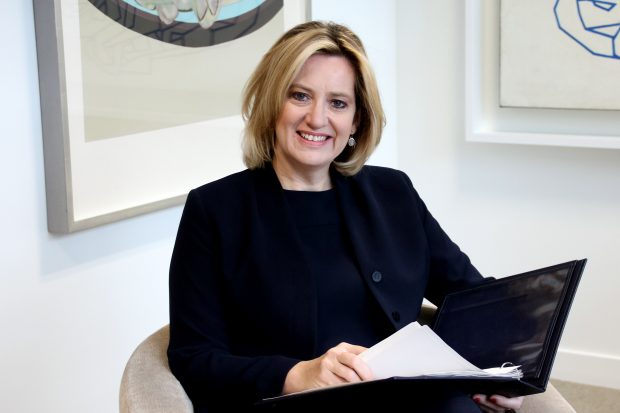
Today marks 100 years since the 1918 Representation of the People Act was passed, allowing the first women to vote.
The Home Secretary has written an article for The Times Red Box, reflecting on the achievements of the women who campaigned for the vote, government investment in the centenary celebrations and encouraging more engagement in public life, and her vision for further improving women's lives.
The Home Secretary and Minister for Women and Equalities, Amber Rudd, writes in the Red Box:
"I know that I speak for many female politicians when I say that it is staggering to think that just over 100 years ago, women were not allowed to vote, let alone stand for such positions as we occupy today.
"When on 6 February 1918 the Representation of the People Act received Royal Assent and finally allowed some women (those over the age of 30 with property) to exercise the same democratic right as many men, it paved the way for us to make huge strides in the political and many other spheres.
"The picture for women before 1918 was almost unrecognisable. They were distinctly separate from the political process – in fact, in parliament, they were physically removed from the action, having to watch from behind a ventilation shaft above the Commons chamber, and
"They were unable to stand for election, and therefore could not shape their own futures in the ways we now take for granted. We have come far since then, and in 2018 we have our second female prime minister.
"To mark this year as the anniversary of a pivotal moment in history, I am proud to be able to say the government will be spending £2.5 million of a total £5 million centenary fund on celebrations and projects specifically designed to encourage more people, from all backgrounds, to get involved in public life.
"£1.2 million has already been awarded to towns and cities with a strong history of suffrage, while a further £60,000 has been granted to smaller-scale celebrations, many of which will coincide with the anniversary of the Act of Parliament that first gave some women the right to vote.
"Some of this money will go to projects specifically designed to increase the number of women in political office – including piloting a programme to inspire young women with opportunities to be leaders in their communities.
"Of course, as important as today’s centenary is, we mustn’t forget there was still a long way to go after 6 February 1918. Universal suffrage only came a full decade later, in 1928. And this in turn reminds us that as far as we have come, things are still far from perfect today.
"Women in parliament, and in most other walks of life, face barriers that men simply do not have to contend with in the same way.
"Of course many MPs struggle with the pressures that our jobs put on our family lives, but no one can argue that the burden doesn’t fall heavily on women. Times have changed dramatically, which is why we now have more women elected to parliament than ever before – 208, which is 32% of all MPs."
